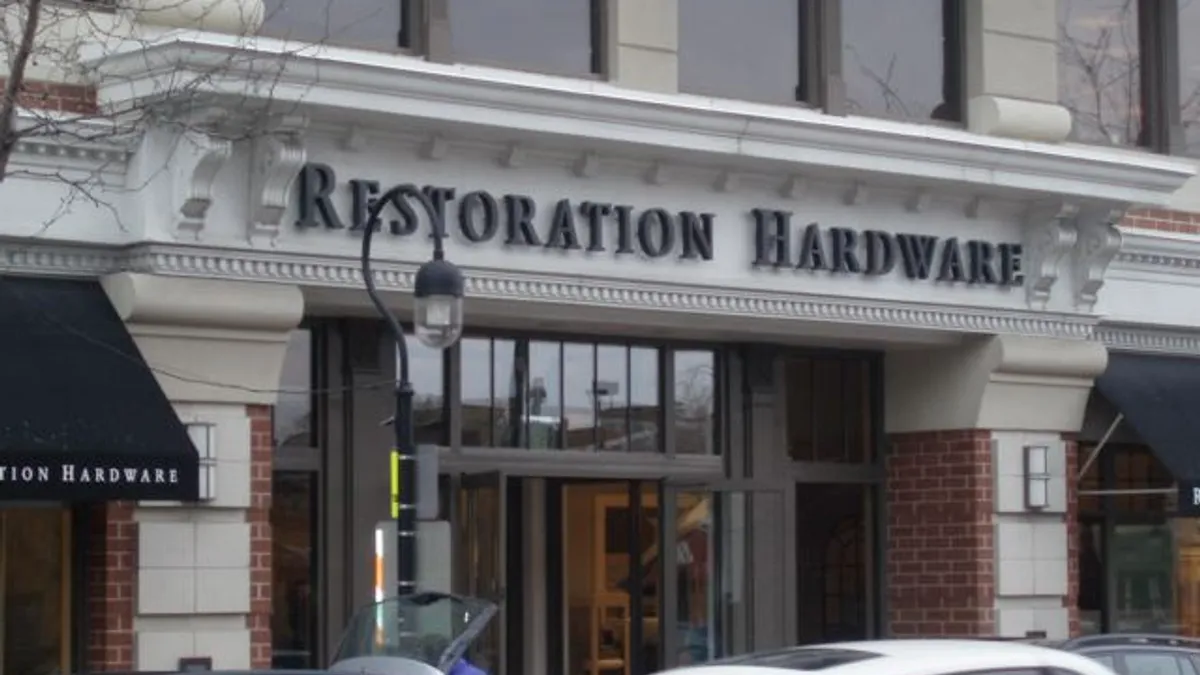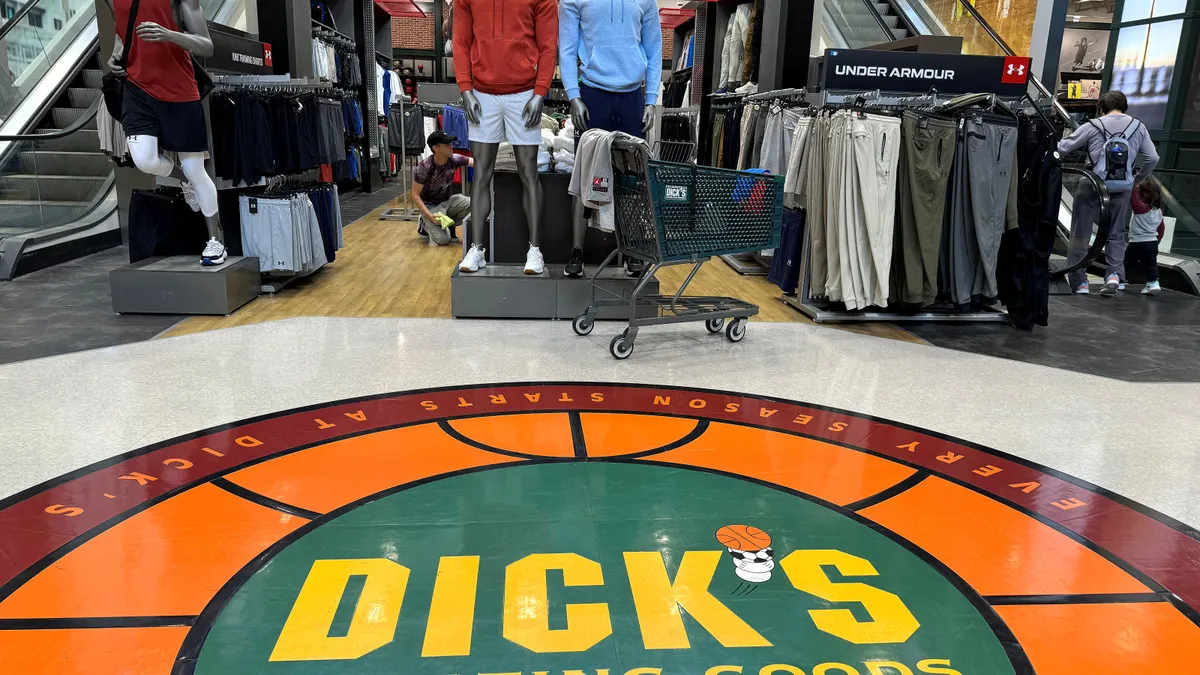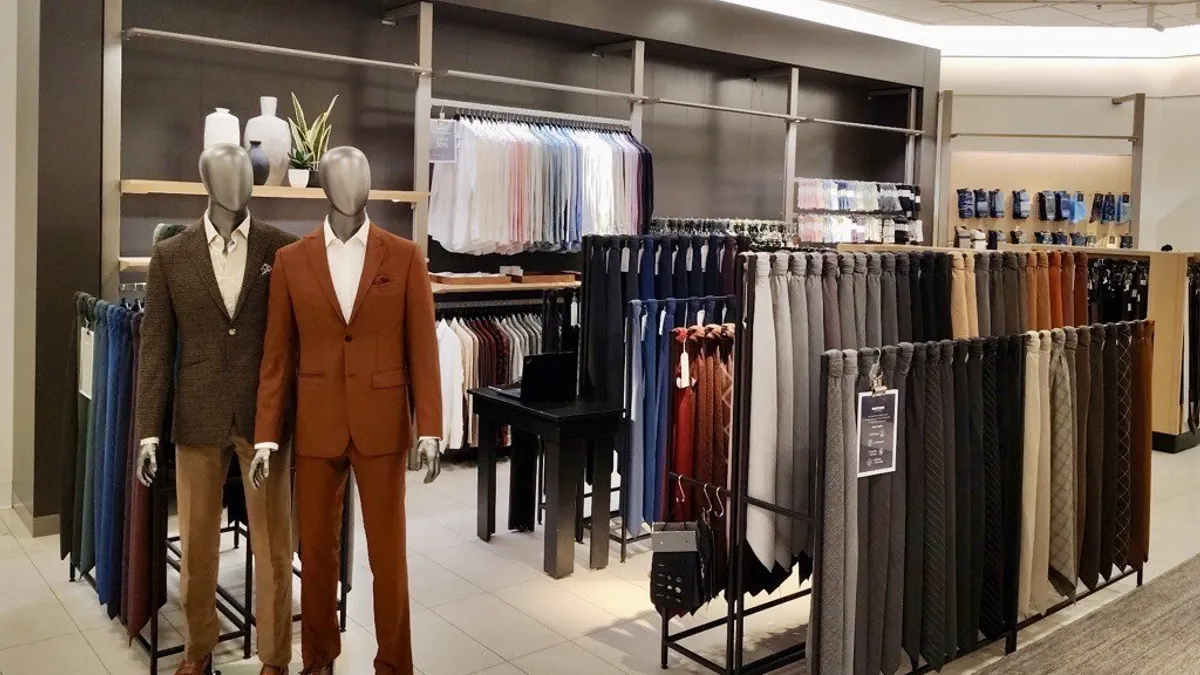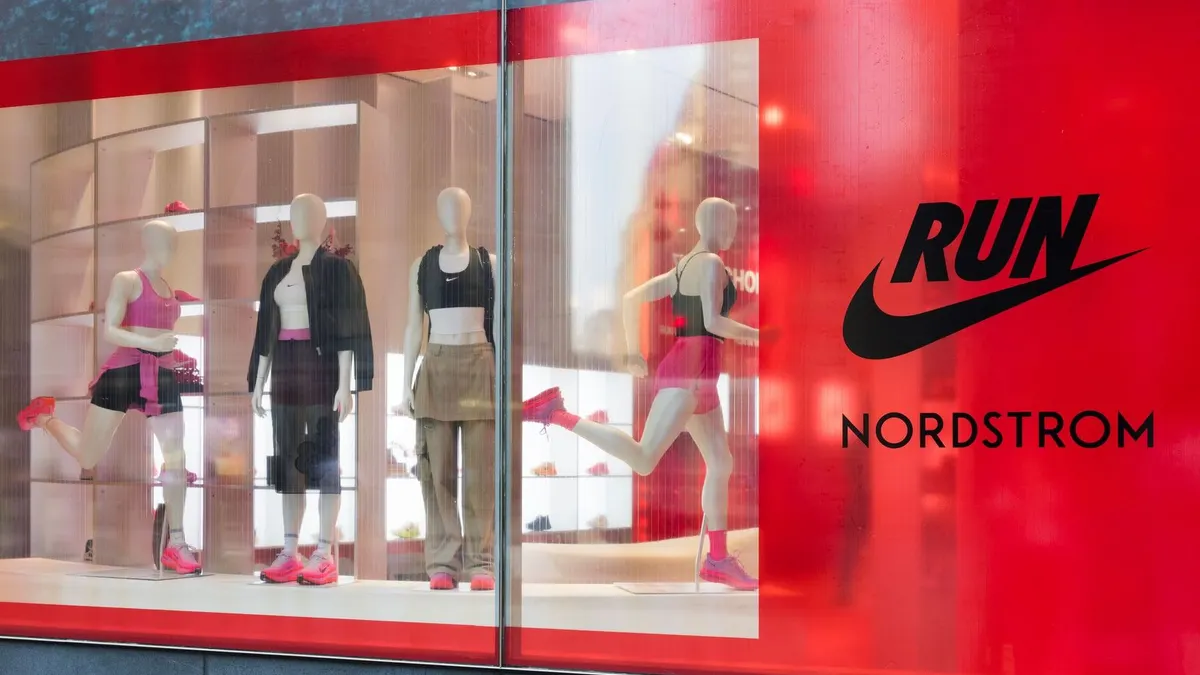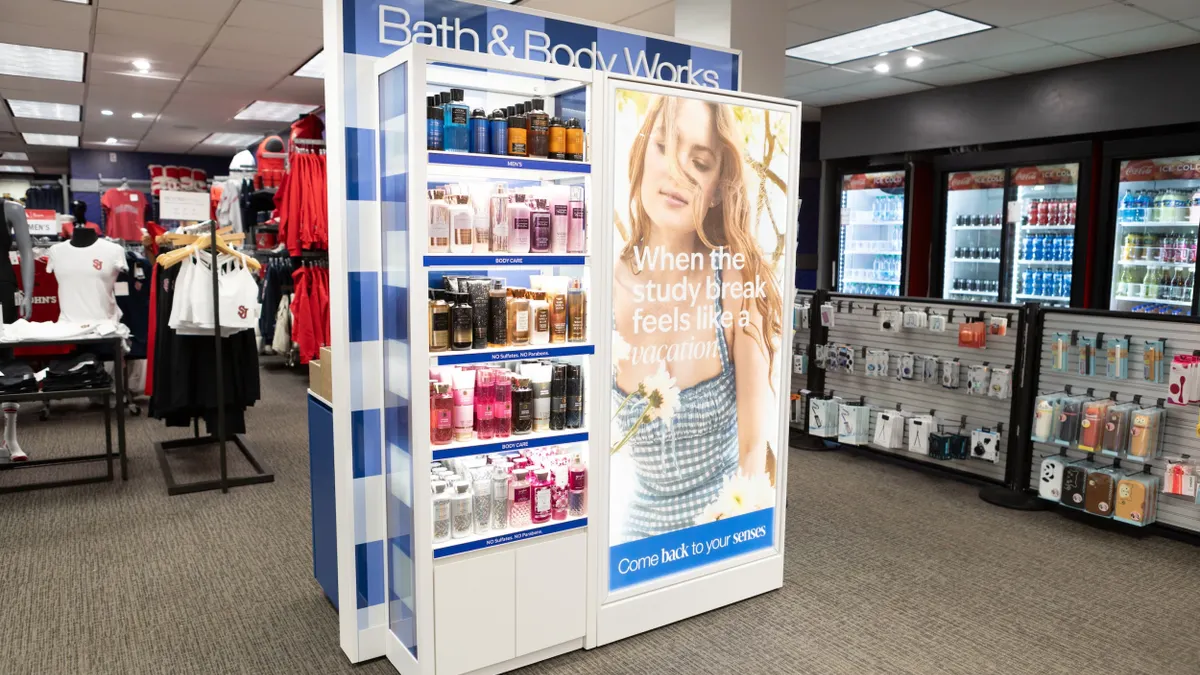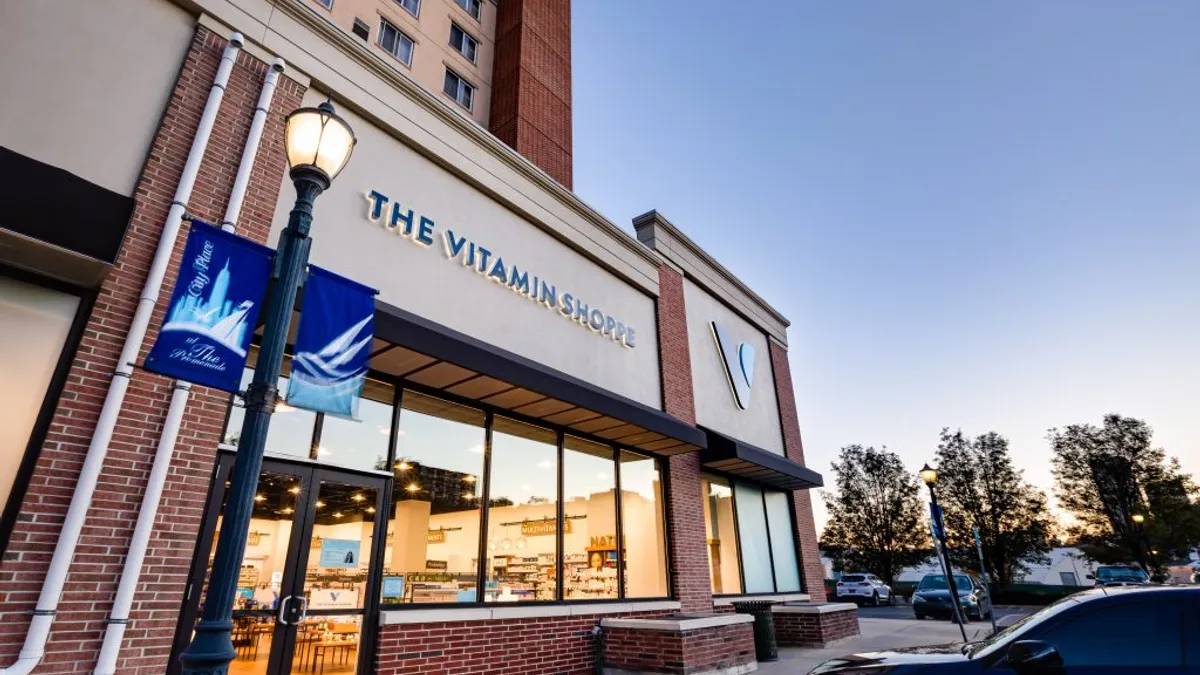RH is heading for the mountains to offer consumers a new way to experience its brand.
The home goods retailer last week announced it made a $105 million equity investment into Aspen, Colorado, real estate to build out a first-of-its-kind ecosystem of properties. The project will feature retail locations, hospitality concepts, restaurants, residential developments and workforce housing projects, according to the company.
It will open its Guesthouse concept in Aspen's Crystal Palace, which will also host the company's first bath house and spa. RH is also building out its Residences, which will include up to five four-bedroom homes at the Boomerang Lodge in addition to a six-bedroom home on Red Mountain. And Aspen, according to Telsey Advisory Group Senior Managing Director Joseph Feldman, serves as "an ideal location" to showcase the brand's products and services to its "affluent" customer base.
"We believe Aspen represents a singular opportunity to elevate the RH brand by exposing the world of RH to the world's most affluent and discerning customers in a single, walkable market," CEO Gary Friedman said in a statement. "Additionally, we believe the education RH will gain from a real estate development and ownership perspective will be immeasurable as the brand builds its global ecosystem of products, places, services, and spaces."
The latest announcement, which Wedbush analyst Seth Basham said serves as a "good first test," is part of RH's long-term vision of expanding beyond its Galleries and developing an "ecosystem" out of its brand. "If it's successful, it will give RH confidence to invest in these areas in other geographies — guest houses, turnkey residences, etc.," Basham said in an email.
The brand previously announced plans to open its first Guesthouse in New York City's Meatpacking District. The 14-room, 25,000-square-foot space was originally supposed to open in the fall of 2019, but has been delayed to sometime in 2021.
But RH has made a play in the hospitality space before. The brand has restaurants, wine bars and cafes in cities across the country, like New York; Yountville, California; West Palm Beach, Florida; Columbus, Ohio; and Minneapolis.
The trend of retailers expanding beyond commerce and into other categories, like by opening branded restaurants, is nothing new. Department stores have long housed restaurants and tea rooms. ABC Carpet & Home in 2010 launched ABC Kitchen through a tie up between chef Jean-Georges Vongerichten and the retailer's creative director Paulette Cole. Crate and Barrel in 2019 launched The Table at Crate, a full-service restaurant within its stores. And Pirch, which specializes in kitchen, bath and outdoor products, allows customers to take a shower or cook a meal right in its stores to fully test out the products.
"Experiential retail is critical to success in a world where consumers can easily shop and make purchases online when the goal is simply convenient purchasing," Basham said, adding that RH's restaurant has proven successful to the retailer by helping to draw traffic and further elevate its brand.
Other brands like West Elm, Shinola and Muji have also put their names on hotels in recent years, but RH is approaching this venture differently, according to Friedman.
"Our guesthouse model is going to be unlike some of the other people that are doing branded hotels," Friedman said on a call with analysts discussing first quarter results, pointing to how several brands have previously partnered with hotel companies. "We're going to control the whole thing."
"You don't have a lot of risk, but you don't have a lot of upside either. You don't really control the experience," he added of others' efforts.
While an investment of this nature and scale may seem unusual, it's not entirely unheard of. Walmart in 2018 announced plans to lease underutilized land and parking space to restaurants, gyms and other businesses to create community spaces dubbed "Town Centers." The concepts — initially rolled out in Washington, Missouri, California, Texas and Arkansas stores — also featured green spaces and skateparks, among other things. However, similar to the deals Shinola and West Elm inked for their hotels, Walmart turned to partners to help build out its centers.
"It doesn't matter if it's a Guesthouse. It doesn't matter if it's a restaurant. It doesn't matter if it's a residence deal. We might have a partner from a development point of view, but we will control it. We want to own it. We want it to be ours. We want to be great at it. And it's hard to be great when you're kind of licensing out parts of your business. No one's going to care as much as you. No one's going to love it as much as you," Friedman said.
The significant financial investment also comes amid the coronavirus pandemic, which has created problems for some retailers so dire they've been pushed into distressed territory. RH, however, has benefited from the pandemic-induced trend of consumers investing more heavily in their homes. The retailer in its most recent quarter reported a 24.6% increase in net revenue to $844 million, while its operating profit grew to $111.2 million.
An experience-driven development like this may play in RH's favor as consumers hold onto pent-up demand for experiences as a result of being forced to spend much of the past year in their homes.
"This is a sizable, ambitious investment," Basham said. "Whether it is successful will be very important to evaluating the value of the company."
Clarification: This piece has been updated to better reflect the nature of RH's Guesthouses based on company information.



